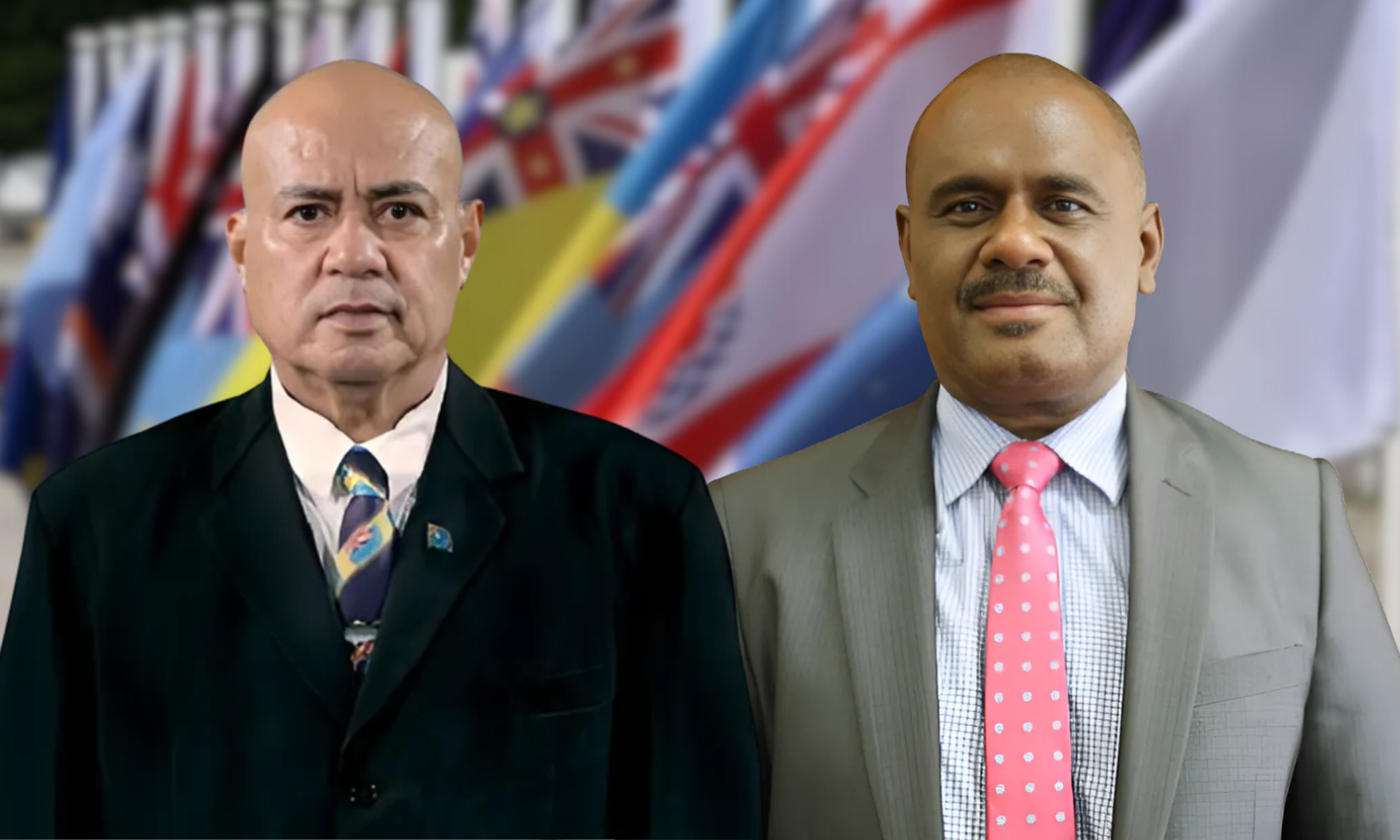

Korean performers entertain guests at the opening of the new Happiness Wing at Riverside Home and Care in Ōtāhuhu.
Photo/PMN News Mary Afemata
New resthome unit highlights the need for cultural care in South Auckland - caregiver
The Happiness Wing for Korean seniors raises questions about whether local councils and the government are meeting the cultural needs of an increasingly diverse and ageing population.



Vatu Dei: Fijian music group uplifts Melanesia culture in Aotearoa
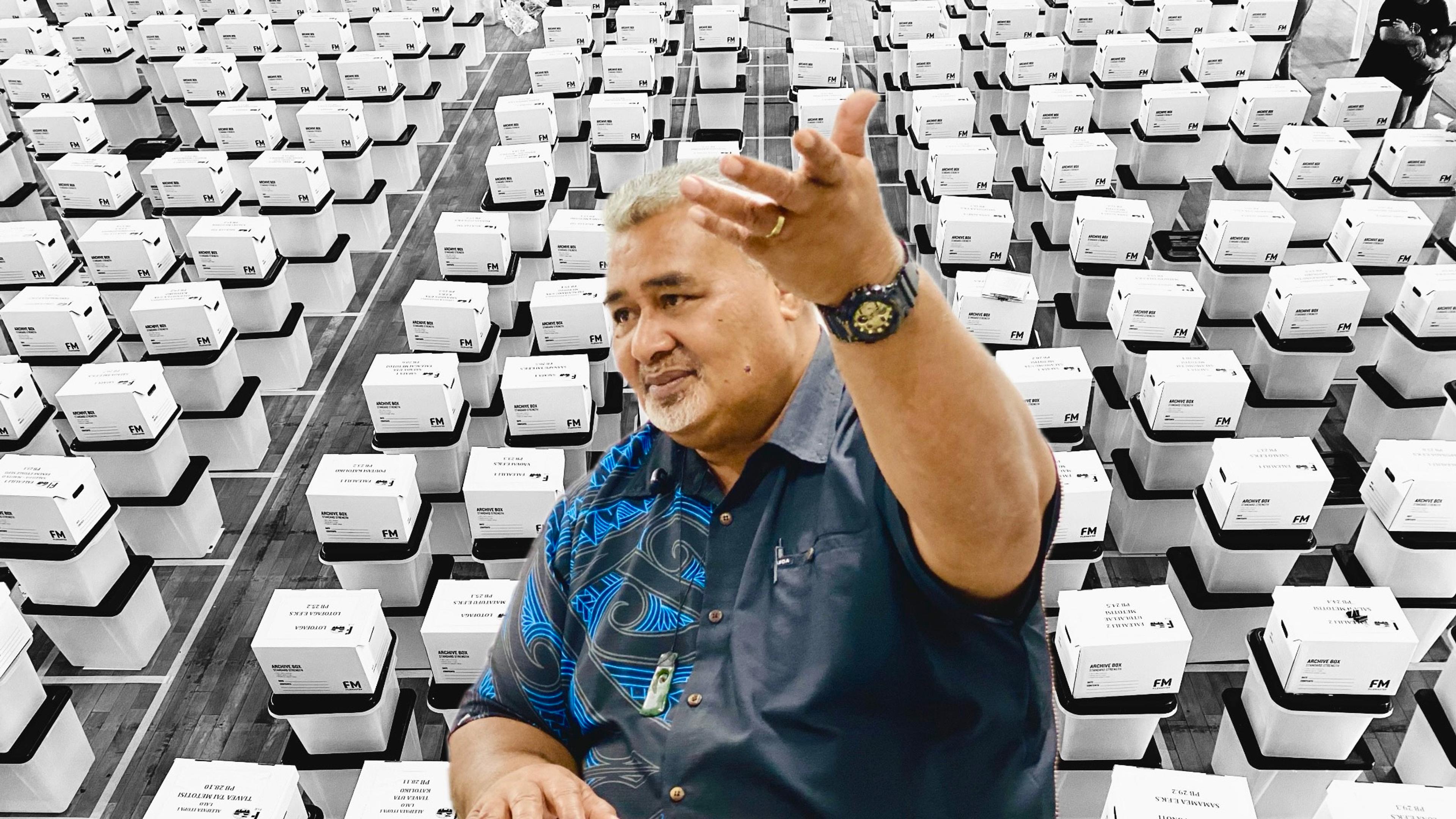
Sāmoa 2025 election: Secrecy of ballot paramount - official

Supreme Court hearing raises critical questions about Fiji Constitution amendment process


Tuvalu shifts focus to local and regional solutions as global climate talks fall short

Vatu Dei: Fijian music group uplifts Melanesia culture in Aotearoa

Sāmoa 2025 election: Secrecy of ballot paramount - official

Supreme Court hearing raises critical questions about Fiji Constitution amendment process
A Pacific caregiver says local democracy must do more to support culturally tailored aged care.
Māngere resident Leata Tauamiti’s comments follow the opening of a new rest-home wing in Ōtāhuhu for Koreans.
Having cared for her elderly parents full-time for over three years while balancing her own family responsibilities, Tauamiti says the services must reflect the culture and linguistic backgrounds of diverse communities.
“It is vital,” she says. “It's very important. And that is why … I ask specifically for Sāmoan [caregivers], for the purpose of catering specifically for my parents’ needs.”
She stresses the importance of language in effective care, saying, “It's very important because, to cater for our elderly people, cultural needs, because it's specific to them.
“And for them to be able to be properly cared for, our elderly people need to be able to speak the language.”
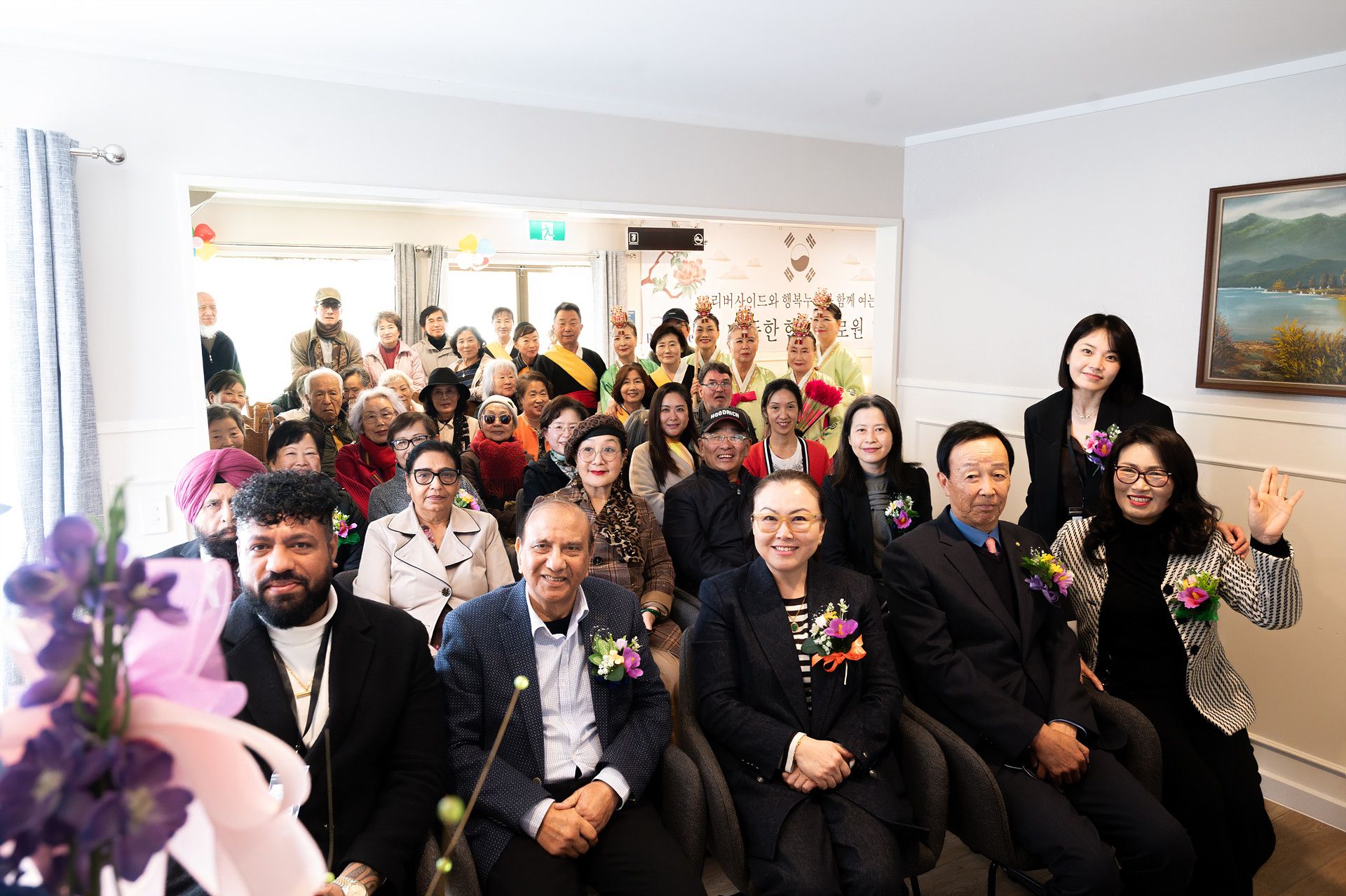
Community leaders and supporters gather to celebrate the launch of the Korean wing at Riverside Home and Care. Photo/supplied
Tauamiti describes the burden of care she bears, adding that she is “the only girl and the youngest.
“My old man is very difficult, he gets angry and frustrated. And so they go all quiet because they can’t speak the language. They’re not able to express freely or get the care they need fully, if it’s not a Sāmoan person.”
Her parents receive support from Pacific Home Care, and when respite is needed, her mother stays at David Lange Rest Home and Hospital.
Taumiti’s experience reflects the challenges faced by many South Auckland families, where cultural and language gaps in mainstream resthomes leave whānau shouldering the responsibilities of care.
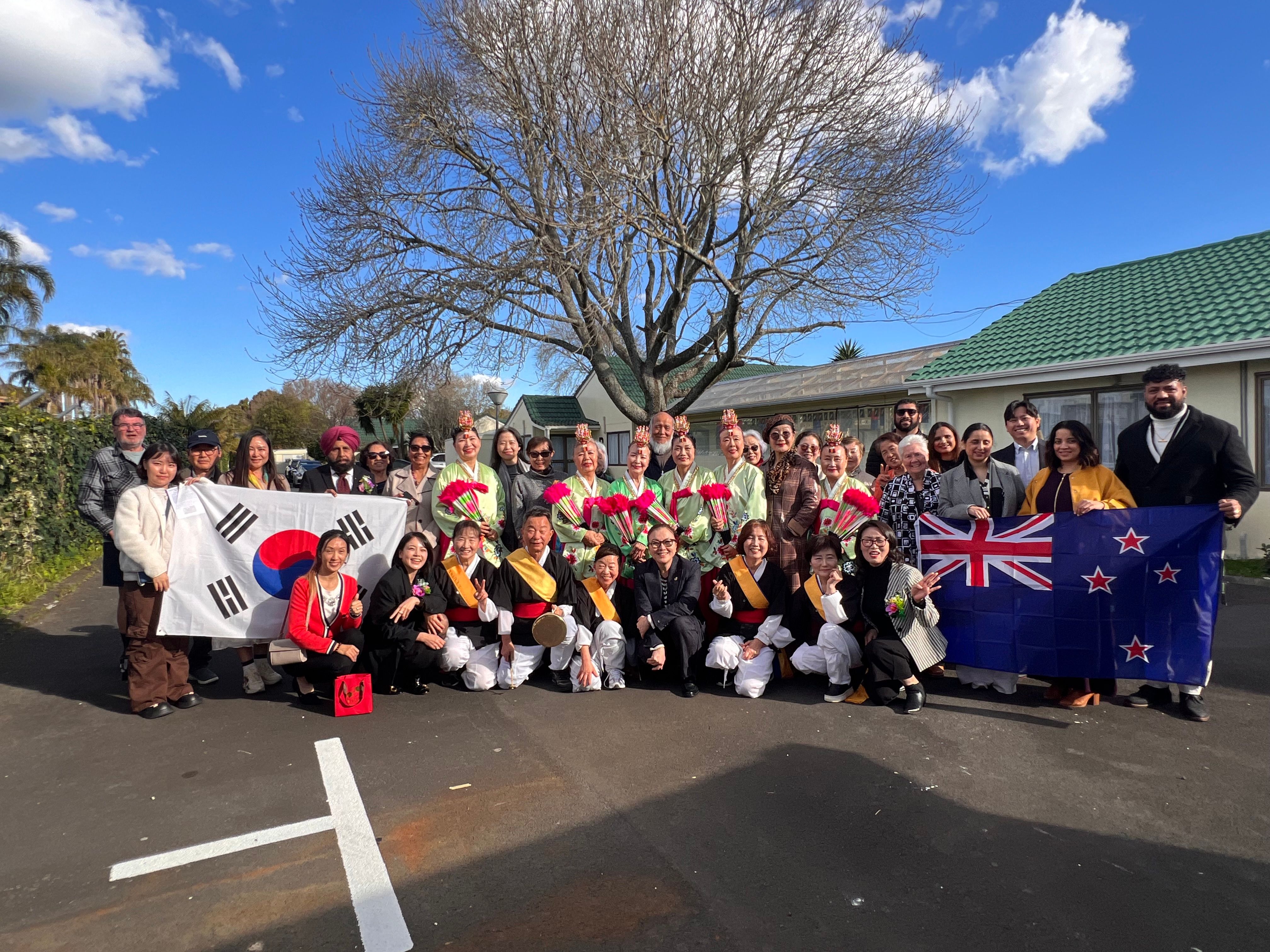
Celebrations at Riverside Home and Care highlight the opening of the Happiness Wing for Korean elders. Photo/PMN News/Mary Afemata
A milestone for Koreans
That gap has now been partly addressed for Auckland’s Korean community with the opening of the Happiness Wing at Riverside Home and Care in Ōtāhuhu.
The new wing is the product of more than 10 years of advocacy by the Korean Positive Ageing Charitable Trust (KPACT). According to the 2018 Census, 35,664 people identified as Korean in New Zealand, with just over 70 per cent living in Auckland.
KPACT founder YongRahn Park QSM called it “a precious first step to ensure that our parents’ generation can live their later years with dignity and comfort, surrounded by the warmth of love within our community”.
Riverside co-owner Mira Oh says the wing was born from personal experience.
“We already have Korean residents, Korean staff and a Korean chef. They can eat whatever they want, speak their own language and feel comfortable with doctors and nurses. “That’s the most important thing for our elderly.”
She says language and food are often overlooked in mainstream rest homes, leaving families to prepare and deliver meals to their loved ones.
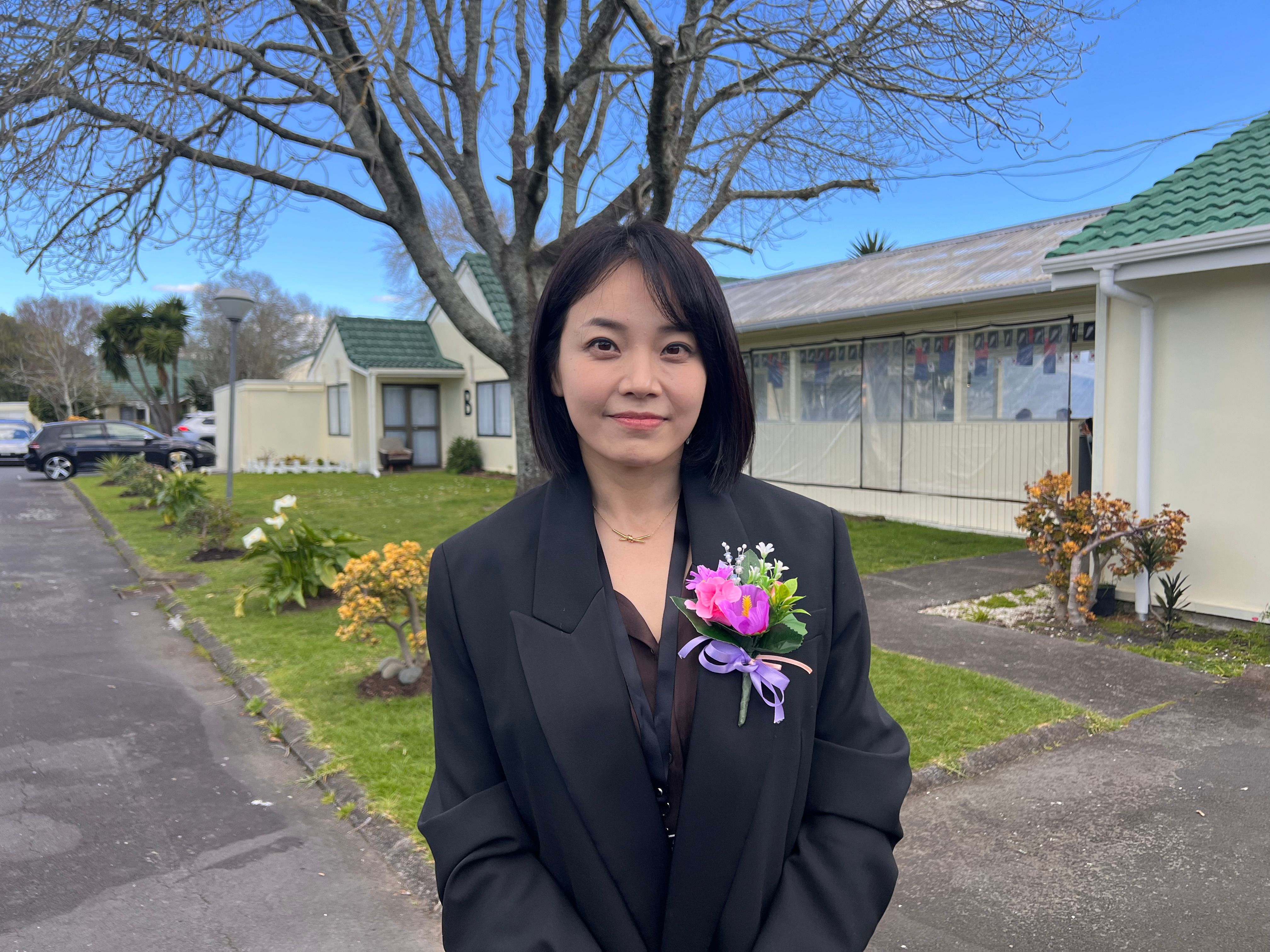
Riverside Home and Care co-owner Mira Oh, who is Korean. Photo/PMN News/Mary Afemata
The cost of care
According to Health New Zealand (Te Whatu Ora), from 1 July 2025, the maximum contribution for a standard rest-home room in Auckland City is $1571.57 per week (GST inclusive).
At Riverside’s Happiness Wing, the weekly cost for a room is at the same amount, in line with the citywide maximum. Government support is available through an assessment.
Some rooms in the Happiness Wing come with their own toilet, while others share a bathroom and shower. One premium room includes a private toilet and shower.
Residents can choose from available rooms at no extra charge, except for the premium room, which incurs an extra charge of $200 per week if occupied by a single person, while remaining free of charge for couples.
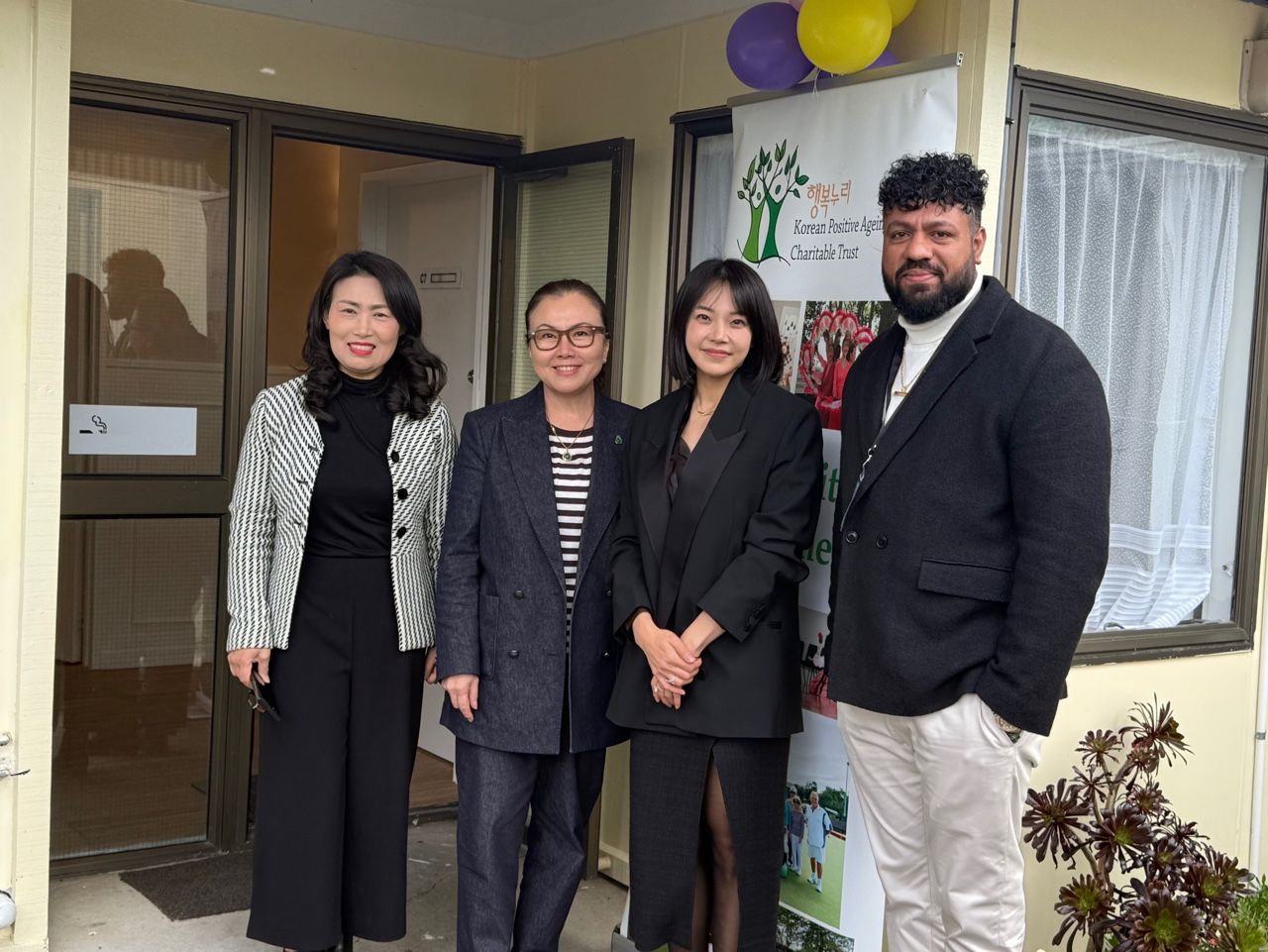
Korean Positive Ageing Charitable Trust CEO Yongran Park, National MP Melissa Lee, Riverside co-owner Mira Oh, and Riverside manager. Photo/supplied.
Civic response
Local representatives say the development raises broader questions for South Auckland.
Togiatolu Walter Togiamua, the deputy chair of Māngere-Ōtāhuhu Local Board, says the project is an example of inclusivity in action.
“There are times when our seniors get left behind. It’s good that this Korean organisation has taken on them to provide that service. As a board member, I totally support those initiatives.”
He says the development also reflects South Auckland’s wider diversity.
“I think it’s great for our community and it’s great for the Korean community. But it’s also that inter-ethnic, working together, collaboration.”
Togiamua points to existing council-run senior facilities in Ōtāhuhu and Māngere, but acknowledges that demand is growing.
“Most definitely. I totally agree and support those initiatives. We do have council senior facilities in Ōtāhuhu and Māngere… not in particular the one that you might be referring to, but we do provide those sorts of senior services.
“This is the first that I’ve heard of a Korean that’s opened up a senior retirement provider. And we look forward to supporting them.
“We wish that all our ethnic groups can have the ability or the finances to initiate these activities or events, in particular this one, this facility. And we’re right behind and we support those initiatives.”
Melissa Lee, a National MP, says the wing is a vital addition. “When people age, they often go back to their mother tongue, and mainstream services don’t cater to them.
“A service in Korean language, with Korean culture and food, is a wonderful opportunity. “Korean people are all over New Zealand, more and more in Auckland. But they’re not all laced up on the North Shore.
“There are a lot of people down South. And I think it’s wonderful that we have a service here, which is accessible, not very far from the motorway.”
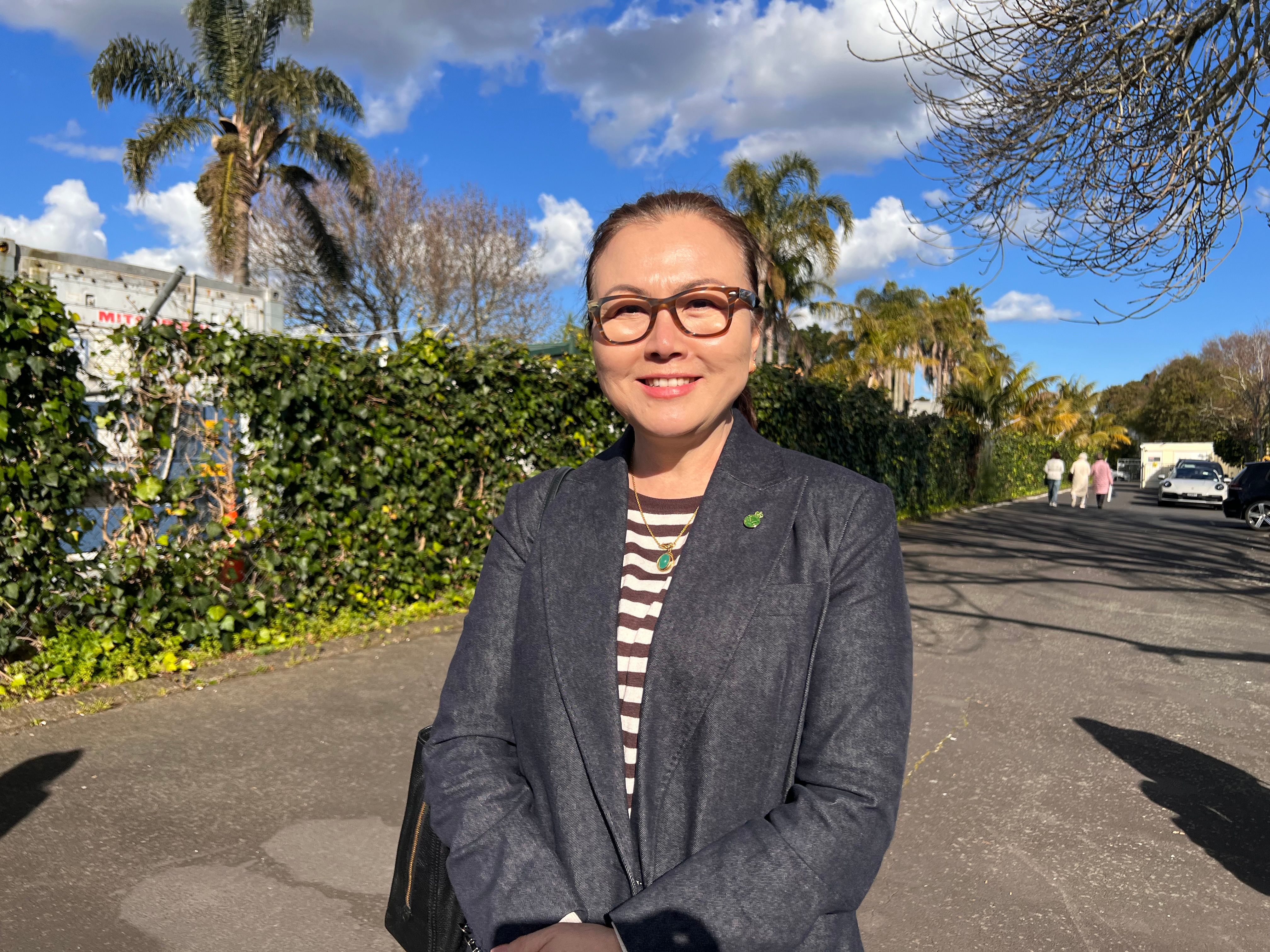
National MP Melissa Lee attends the opening of the Korean-specific aged-care wing in South Auckland. Photo/PMN News/Mary Afemata
Lee says feelings of isolation can be detrimental, and with the Happiness Wingat Riverside, “at least, they’re going to feel like they belong and they actually are cared for”.
Mervin Singham, Chief Executive of the Ministry for Ethnic Communities, also congratulated the community, saying, “This milestone reflects the strength of community-led solutions.
“It stands as a powerful example of how culturally responsive services can enhance wellbeing, reduce isolation, and honour the diversity that enriches Aotearoa New Zealand.”
Singham hopes this will be a place of comfort, connection, and joy for years to come.
While Auckland Council does not operate aged-care facilities, local boards are being asked to support inclusive services.
Carolyn Cooper, the Aged Care Commissioner, extended her congratulations and best wishes for the opening, saying that the Korean wing at Riverside Home and Care is “more than a facility, it is intended it will be a place of belonging, dignity, and cultural connection”.
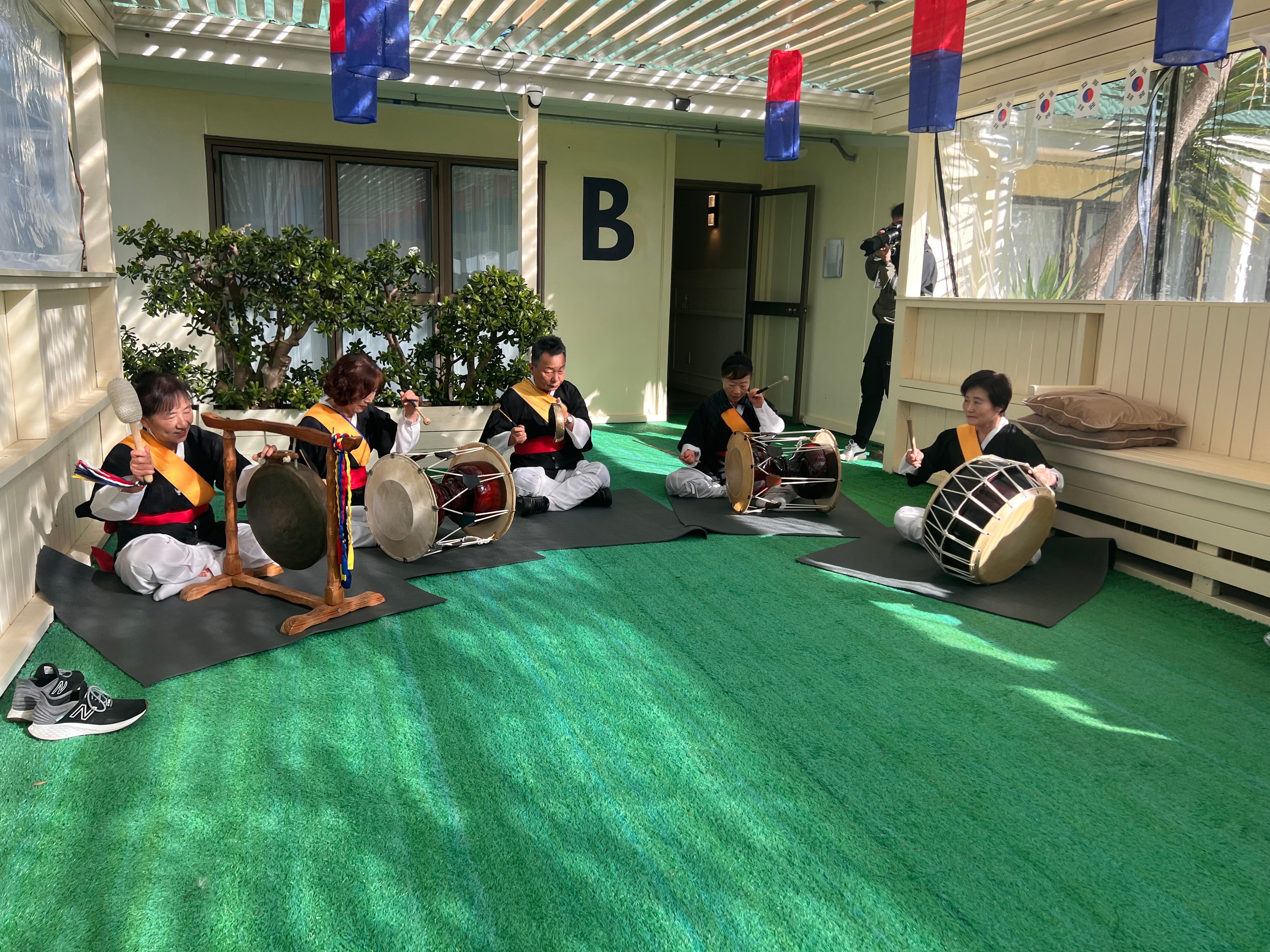
Entertainment marking the Happiness Wing opening, with a group performing on traditional Korean instruments during the cultural celebration at Riverside Home and Care. Photo/PMN News/Mary Afemata
She hopes it will “bring comfort to older people, peace to families, and pride to the community,” and “flourish as a model of care that honours language, heritage, and the deep human need to feel at home.”
Cooper also acknowledges the efforts of the KPACT and its partnership with Riverside to support older Koreans and their families.
Riverside’s Happiness Wing is already attracting interest, but for owner Oh, the vision goes beyond just providing beds.
“We’re planning programmes for Korean elders, traditional games, outings, and spaces where they feel truly at home”.
LDR is local body journalism co-funded by RNZ and NZ On Air.
